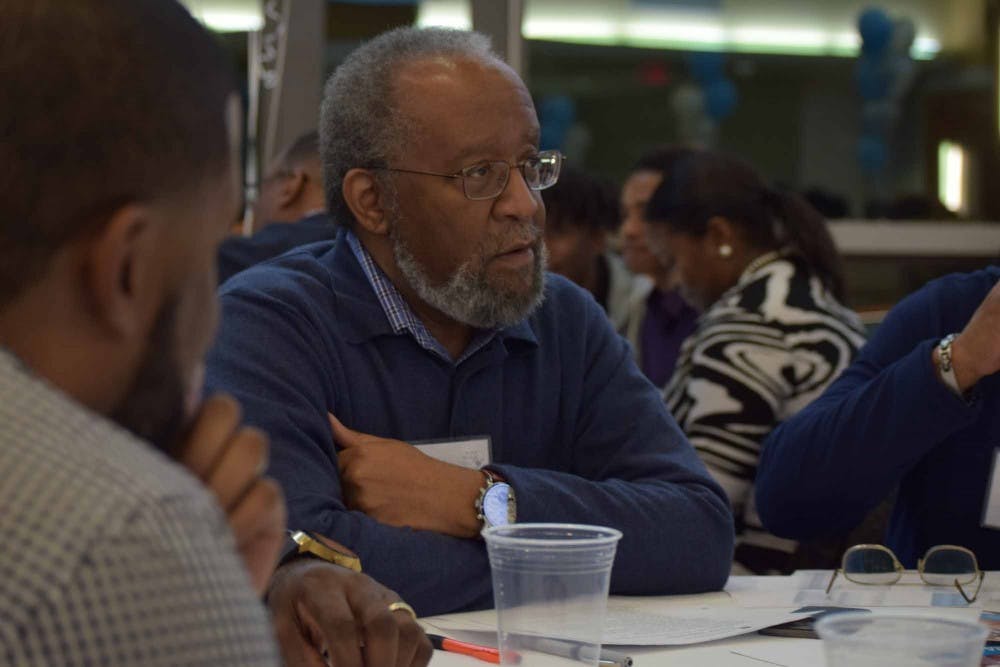The Multicultural Affairs & Diversity Outreach Committee of UNC Student Government’s undergraduate executive branch hosted the first-ever Black Male Unity Dinner on Saturday night.
Alumni, parents, current students and prospective UNC applicants were invited to discuss the identities of Black men and how to collectively address the problem of low Black male enrollment and retention at UNC.
During the dinner, students — past, present and future — mingled. Parents attended a panel on life at UNC, while students and graduates attended workshops that addressed self-identity, stress relief and mental health resources available on campus. Polls that ran throughout the event gathered responses from the audience on where they thought UNC could further support Black male students.
The Office of Diversity and Inclusion provided financial support for the event, helped with workshop development and provided materials, said sophomore Bria Clyburn, a member of the planning committee.
Although the idea was initially conceived in 2018, it wasn’t until this school year that the dinner came to fruition with additional funding and support from the Campus Y, the Black Student Movement and other UNC organizations.
“This year, I really wanted to make it my goal, as co-chairperson of MADO, to make sure that this event happened, because I think it’s really important,” said Malin Curry, a junior studying political science and public relations and one of the organizers of the event.
Black males in the UNC class of 2014 cohort, studied by the Office of Institutional Research & Assessment, had a four-year graduation rate of 68.9 percent, a full 15.1 percent lower than the cohort of Black females, which came in at 84 percent. The general student population cohort for the class of 2014 had a graduation rate of 85.6 percent overall.
For some graduates attending the event, the dinner was one part of a larger movement to draw more Black male students to UNC.
“I think that the University should strive to go after some of these kids,” said Walter Faison, a member of the class of 1982. “I just think that if we made the effort to attract them, just like the football team — Mack here is trying to get all this homegrown talent — there are a lot of intelligent young Black males here in North Carolina in our high schools, and if we don’t reach out to them, they’ll look elsewhere.”




